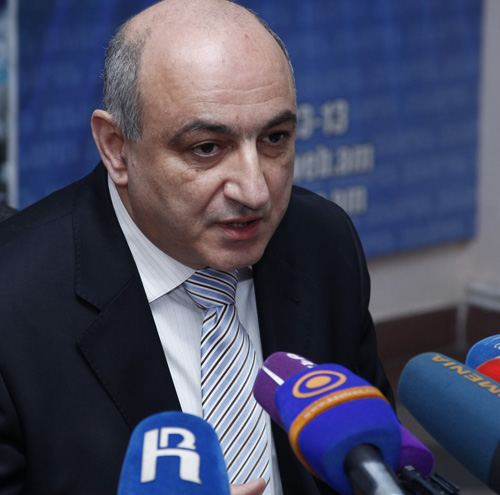According to Yerevan Press Club President Boris Navasardyan, not everyone in Moscow is glad and happy, yet 2013 not to be repeated
“Mr. Navasardyan, last week you participated in the annual forum of the Eastern Partnership Civil Society Forum (EaP CSF) in Tallinn, what are your impressions, what kind of atmosphere is there for the signing of the agreement with Armenia in general?”.
“Quite optimistic. Johannes Hahn, Commissioner for Neighborhood and Enlargement of the European Commission, stressed, that in any case either during the summit, or within its time framework, the new framework agreement will be signed with Armenia. It is noted that the document is of a serious content.
We were also pleased with the fact that the meeting, which was intended for beneficiaries, that is delegates representing Armenia, also had an interest among our EU partners, who also were present, were addressing questions, and wanted to better understand the entire process”.
“It is known that Serzh Sargsyan will leave for Russia on a working visit in mid-November to participate in the solemn opening of the “Days of Armenian Culture in Russia” event. Many people have logical anxiety, they ask whether Moscow may again impede the signing of the agreement. Mr. Navasardyan, regardless of the jealous statements of some experts, does Russia see a problem in Armenia-EU agreement signing?”.
“If we refer to the coverage of the whole process, I think more intrigues are spoken about, than they actually exist. I do not think Serzh Sargsyan’s visit to Moscow will have any immediate impact on the signing. But, of course, this issue will be discussed, Armenia should once again assure our strategic allies that it will not hinder Armenia-Russia relations and Armenia’s accession to the EAEU. Though we see different publications that Kyrgyzstan and Armenia are the participants of the EAEU, which are not very interested in this integration project. These issues, of course, will be discussed, Armenia’s relations within the framework of the EAEU and in the context of cooperation with the EU will be clarified. But it should not hinder the signing of the Armenia-EU agreement.
Of course, this does not mean that everyone in Moscow is very glad and happy, we see that in the statements of different experts and politicians, where they either directly accuse Armenia of betrayal, or state that Armenia plays a double game. I think this will go on, there will be such psychological pressure, but what happened in 2013, when, roughly said, there was a clear order, I do not expect anything like that to happen. We just need to be ready for certain manifestations, which will be in the form of certain practical steps not only as a psychological impact, but also as dissatisfaction of the Russian Federation. I think our authorities have taken this into account, and know what they will do. For example, one of the areas where there may occur pressure and dissatisfaction reflections, is the warming of Russia-Azerbaijan relations, as well as certain, temporary changes in the Russian position on the Artsakh issue without significant consequences. But that was to be expected, to be cold-heartedly admitted, and I hope that not only at the public level, but also the authorities realize it and are ready for it. Especially since in the last four years we have had many occasions to make sure that in 2013, our obedience did not secure us from Moscow’s position changes”.
“There is information that in the Declaration of the EaP Summit to be held in Brussels on November 24, some countries seek to get support from the summit participants on the provision of territorial integrity and inviolability of borders, which is supported by Ukraine, Georgia and Azerbaijan. Especially after the famous events in Catalonia do you find the unconditional inclusion of these provisions possible?”.
“That should not be excluded, just the following is important, after all, if some countries raise the issue of territorial integrity, and sovereignty principles approval, it will be very difficult for the EU to resist it. But it is very important in which part of the Declaration it will find place. It is one thing that it will be a purely common declaration point and another, if it will be presented directly in the context of conflict resolution. I hope Armenia will have enough determination not to let such principles be linked to the Artsakh issue negotiations in the Declaration. We must expect that if the implementation of the principle of territorial integrity is being linked to the issue of our concern, it should be formulated the same way as it was two years ago at the Riga summit and in the bilateral EU-Armenia agreement. That is there should be a reference to the principles developed by the Minsk Group, where territorial integrity is combined with the nations’ right to self-determination. I think this is a well-grounded position for EU member states to accept.
But it is also clear that even the general mention of the principle of territorial integrity in the declaration, will be used by Azerbaijan for different speculations. Over the years, we have seen how Baku distorts the meaning of the four UN Security Council resolutions. We need to be ready for that as well, to be able to give convincing answers in information, ideological domains, and understand ourselves that declaration of common principles in practice cannot change EU policy on Artsakh, which is the recognition of the exclusive powers of the OSCE Minsk Group.
Emma GABRIELYAN




















































